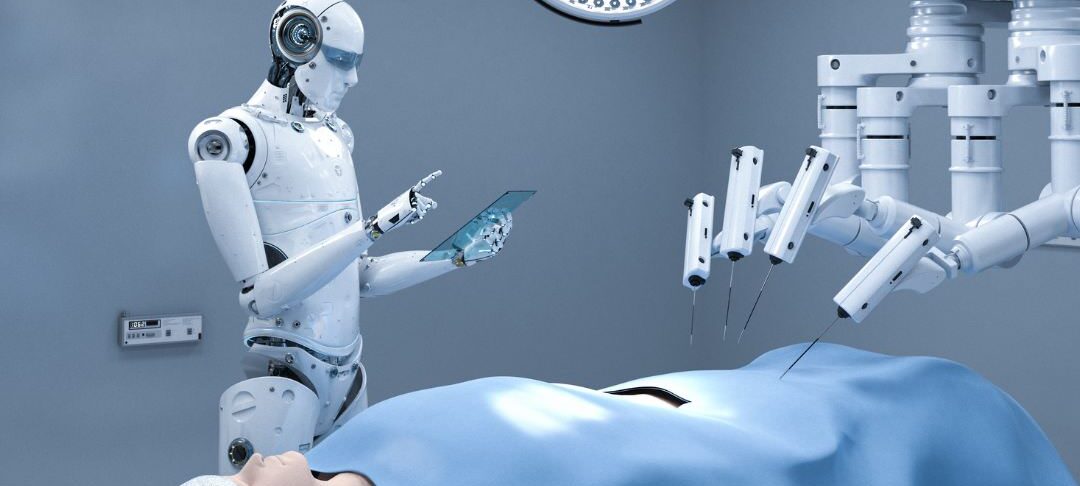Robotic surgery has been commercially available for two decades, yet for many patients it might seem out of reach. Tania Jacobs speaks to The London Clinic about where we’re at with this amazing technology – and why the future is closer than we think.
The London Clinic might be celebrating its 90th anniversary this year, but its finger is firmly on the pulse when it comes to innovation.
And right now, the focus is on robotics. Having been the first private hospital in the UK to introduce robotic surgery in 2005, its stake remains firmly in the ground today.
The London Clinic has built a centre of excellence in robotics right in the heart of London’s premium medical district, Harley Street. It is the only UK independent hospital to be home to four different robots: the da Vinci Xi Surgical System, Navio for orthopaedics, AquaBeam for prostate resection and, most recently, the ExcelsiusGPS for spinal. While the aim is to provide consultants with the most advanced equipment available, it is all in service of ensuring the best possible outcomes for patients.
What is perhaps interesting about The London Clinic’s set-up is that it operates as a charity. There are no shareholders and all surplus profit is reinvested into the hospital across three crucial areas: patient care, education and training, and research and innovation. This is all meticulously planned around patient need – and every investment counts.
“The London Clinic achieved charitable status in 1935. Since that time, we have continually searched for the best ways to care for patients and to improve their health outcomes,” says Professor Prokar Dasgupta, a Urology Consultant and The London Clinic’s Robotics and Technology Lead. “We are committed to advancing clinical excellence and sharing best practice worldwide so that others may benefit beyond our hospital walls.”
This mantra of collaboration is key to The London Clinic Centre for Robotic Surgery. A multi-disciplinary team, comprised of world-class consultants, nurses, anaesthetists, surgical assistants and other clinical specialists, works seamlessly together. The approach means the centre can be fast, knowledgeable and adaptable.
So, why does The London Clinic believe robotic surgery is such a critical area for healthcare?
“There are many benefits to robotic surgery,” explains Mr Manish Chand, a Consultant Colorectal Surgeon and Professor of Surgery based at The London Clinic. “It’s minimally invasive, which greatly reduces the level of pain, the scarring and the recovery time.”
“Put it this way,” says Professor Dasgupta, “If I was working on a prostate cancer case 20 years ago, I would have had to make a cut in the tummy to physically take out the gland containing the cancer.”
Today, all that has changed. “We put six small holes in the tummy [keyhole surgery] and we attach the patient to a robot which has little wrists only 7 millimetres in size, compared to my big hands. The robot has 3DHD vision which can be magnified at least 10 times. The prostate, which is the size of a chestnut, now looks like the size of a football so I can see it much more clearly. The machine also removes all tremor, making the surgery very precise. The patient loses less blood and stays in hospital for a shorter period of time. The recovery is faster and overall the results are better.”
It would appear that success breeds success. While robotics has taken off in prostate cancer surgery – around 94% of these surgeries are robotic today, compared to just 1% 20 years ago – its uptake has been slower in other areas. However, this is starting to change. By introducing new robots and expanding into other fields, more patients who have previously been told they can only have open surgery will be able to benefit from minimally invasive surgery.
“For a number of reasons, the uptake of robotic surgery in certain fields has been slow within the private sector,” says Mr Chand. “Often, the robots have been limited to the field of urology; or there has been a lack of resources and training to perform robotic surgery. Our aim is to move the dial.”
The London Clinic has already long been establishing a world-leading programme in urology and is well on its way to replicating this approach into colorectal surgery, with more specialties to follow. Part of this process is about addressing the skills gap and growing confidence in robotic surgery. The London Clinic Centre for Robotic Surgery provides education and training to support the next generation of robotic surgeons to develop the skills they need to safely and confidently integrate technology into practice.
“While many people are very excited about robotic surgery, it probably forms less than 10% of surgery in the world,” adds Professor Dasgupta. “In terms of scale and awareness, it is still in its infancy. As an independent hospital, it’s our responsibility to push forward with robotic surgery so that it become more readily available. Patients should know that they have options, and that often robotics may be the better choice.”

